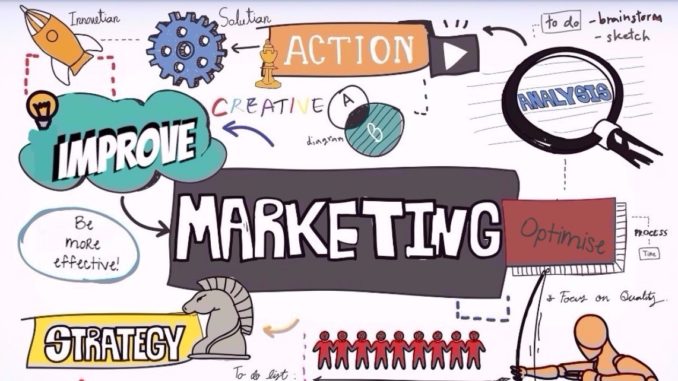
You nailed your pitch, secured your investments, and took care of the logistics. Your office is all set and clients are slowly trickling in. But — and this is a big one — your brand visibility is zero. Your services are top-notch, but no one knows what’s on offer.
Go digital or go home
Sure, if you’re a huge, well-established company like, say, Palmolive — marketing purely offline could do the trick. But when you’re a fledgling startup, it’s not quite as straightforward. In this case, digital marketing must be at the core of your brand and marketing strategy. And let’s be honest — it’s 2019, so if you’re not going digital, you’re going nowhere!
Here’s why I feel thinking digital is absolutely on brand (read on point) today:
Digital is a great way to validate your product ideas before hitting the market. It’s one of the lowest cost methods to understand user evaluation and response for any product, come what may. From guitar classes to the next level of personalised travel, we have seen digital being successfully used to check the market for any product and I am a firm believer that marketing dollars need to be spent only once a brand has discovered their target audience and garnered traction on their MVP.
Then comes the brand
Once most startups have figured their viable product, the logical next step is to create awareness about your brand and ensure a consistent brand image across all channels. Again, understanding where your target group is on digital media gives you straight pointers and easy ways to access them. Think of reaching a customer in a far-flung Tier2/3 city — not always physically possible. But thanks to digital (and an e-commerce savvy customer) your brand can reach absolutely anyone. And yes, you need to be on more than one channel — what works today might not work tomorrow, so spread your presence on multiple platforms such as Tumblr, Twitter, Instagram, and LinkedIn. And once there, look and sound the same. Consistency online is as important as consistency offline. Because consistency in representation helps build a brand.
Test, test, test
Thanks to its low-risk character, you can test everything online from your product idea to brand recall to marketing strategy without running into irrecoverable losses — and that’s music to any startup owner’s ears! In addition, unlike traditional advertising channels, creative testing within the digital space, regardless of the medium used, is super easy to perform. While there are two major testing methods — A/B and multivariate — I’ve always been a strong advocate for the latter. Multivariate tests accelerate the campaign optimisation process since they allow more than one change to be made. And since it places no limits on the number of elements that can be tested and modified, it allows you to take the kind of risks that traditional marketing and testing wouldn’t allow. I’d say it’s a pretty sweet deal!
Recently, we helped a women-centric platform with their initial digital connect to the consumer. From a number of online engagement avenues to taking the brand offline for a direct connect to the consumer, and the young brand, Foreva, was able to discern enough user behavior to pivot to a gender diversity platform for corporate engagement. Early understanding of the audience and the right consumer connect is thus easiest seen online.
Map your customer journey to the T
You can directly target consumers that you know are interested in your product — to me, that sounds a lot better than spending huge amounts of money on a hoarding that may or may not be seen by the right people! So begin by identifying customer needs, behaviors, and touchpoints, and then use a tool such as WebEngage to connect with users through their lifecycle. This multi-channel user engagement platform enables you to connect with them through these channels — web messages (notification, survey, and feedback), in-app messages, push notifications, emails, and text messages. Think of mapping customer journeys a little bit like digital stalking — with no harm intended!
Enjoy incredible RoI
A conducted by Demand Metric and the Data & Marketing Association (DMA), it was concluded that email marketing had an impressive ROI of 122 percent. Yes you read that right — 122 percent! If you’re patient enough, go for content and SEO marketing to see great results in the long-term, or if you just want a quick shot-in-the arm, pay-per-click advertising is the way to go. So assess your needs, and choose what works best for you — whichever way you go, you’re bound to make a profit.
All said and done, when it comes to digital marketing, trends, processes, and platforms are ever evolving. So what’s working now may be obsolete two years down the line. Make sure you stay up to date on the industry, pick what works for you, and watch your brand presence grow!
Tina launched the company in 2011, and today, it is known for its award-winning work in creative & business communications, and digital services. She comes with extensive experience in the creative industry, and is passionate about empowering women entrepreneurs.
